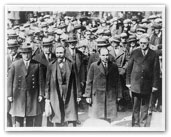


5 Meanwhile, the very idea of “brows” originated in racist phrenological studies, which sought to tie intellectual ability to head size and shape. 4 Cultural mediators-the educators, concert programmers, broadcasters, and publishers behind these middlebrow initiatives and critiques of them-frequently framed their values in gendered terms, borrowing negative stereotypes of women and excluding female artists from their canons. 3 Middlebrow initiatives such as music appreciation often shared many of these highbrow prejudices, championing a Eurocentric canon in response to the growing popularity of jazz. More broadly, highbrow attitudes toward middlebrows were also shot through with anxieties about effeminacy and cultural miscegenation. The middlebrow, she complained in 1932, was “the man, or woman, of middlebred intelligence who ambles and saunters now on this side of the hedge, now on that, in pursuit of no single object, neither art itself nor life itself, but both mixed indistinguishably, and rather nastily, with money, fame, power, or prestige.” 2 As these words suggest, critiques of the middlebrow echoed many of the charges frequently leveled at mass culture-those of standardization, of selling out to the superficial whims of the marketplace, and of the associated loss of individuality. Perhaps the most widely cited indictment was Virginia Woolf's. Self-described highbrows used it as a derogatory label for those whom they imagined to be guilty of a disingenuous attempt to have the best of both worlds-high and low.

Last but not least, the category referred to the cultural products-literature, films, and music-that catered to this distinctive constituency.įrom the time of its first appearances, the term “middlebrow” was deeply ambivalent. “Middlebrow” also described the target audiences, who looked to culture for aesthetic education, social elevation, and spiritual edification. Meanwhile, others devised initiatives inspired by new media, such as NBC's Music Appreciation Hour, which ran from 1928 to 1942 or Victor's “Red Seal,” a gramophone label launched in 1903 to promote classical music.
#Colloquy meaning series#
For some, broadening access meant bolstering late nineteenth-century institutions, such as the BBC Proms and the Boston Pops, concert series founded in 18 respectively. These included those who hoped to broaden access to high culture and the institutions and initiatives through which they sought to do so. Yet from the beginning, the battle lines were complicated by the “middlebrows”-those artists, mediators, and audiences who sought to combine these putatively oppositional aims. In one camp were the “lowbrows,” whose imagined desire for mindless entertainment was supposedly exploited by shamelessly commercial companies in the other, “highbrows,” epitomized by the emerging modernists, were said to shun the offerings of mass culture in favor of aesthetic autonomy, originality, and difficulty. 1 In response to the rise of mass technology, commentators of that era sorted consumers and products into polarizing categories in an anxious attempt to restore order to a shifting cultural terrain. Coined in the 1920s to describe those who fell between high and low culture, the concept harks back to an era openly invested in cultural hierarchies. If you find any bugs in this program please report me at You need to enable JavaScript to run this Website.From the pluralist vantage of today's academy, a colloquy on the “middlebrow” might seem like an unfashionable proposition.
#Colloquy meaning free#
Please support this free service by just sharing with your friends. Select the language from the dropdown given below & click on the button (Or Enter) to get the Meaning in your language. These languages include Chinese Traditional, Hebrew, Dutch, Lithuanian, Polish, Filipino, Norwegian, Georgian, Finnish, Danish, Maltese, Albanian, Latvian, Indonesian, Catalan, Chinese Simplified, Arabic, Galician, Estonian, Tamil, Esperanto, Kannada, Czech, Hungarian, Turkish, Thai, Yiddish, Belarusian, Malay, Macedonian, Croatian, French, Slovak, Vietnamese, Bulgarian, Romanian, Korean, Persian, German, Spanish, Irish, Welsh, Telugu, Portuguese, Icelandic, Italian, Swedish, Slovenian, Ukrainian, Hindi, Swahili, Russian, Basque, Greek, Japanese, Afrikaans, Urdu, Azerbaijani, Serbian, Bengali, Haitian Creole, Malayalam, Gujarati, Latin etc. It's a free Multilanguage dictionary with many languages around the World.


 0 kommentar(er)
0 kommentar(er)
